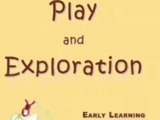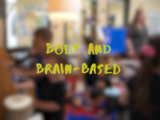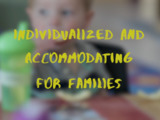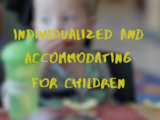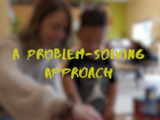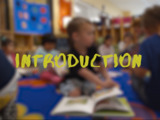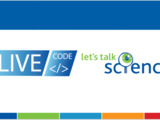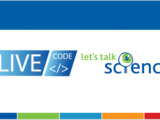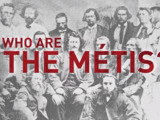watch_login 3282
Videos are listed chronologically by date added, beginning with the most recent
First Nation Schools MySchoolSask/MonÉcoleSask Project Update and Demonstration
This March 5, 2020 presentation provides a project update and high-level demonstration of the main functionality of the MySchoolSask (MSS) application.
Public Video
PROFESSIONAL Video
Great Minds of Design Episode 1: Urban Redesign
Series: Great Minds of Design
Street artists redesign the cityscape with clever urban interventions that use natural elements as their materials.
Three Early Childhood Education Programs: Creating Responsive Environments
This video features three Saskatchewan sites that are on their journey of providing high quality programs for children and their families as they implement the Play and Exploration: Early Learning Program Guide. Video footage showcases early learning environments for young children.
Public Video
PROFESSIONAL Video
Conclusion: Fostering Inclusive Early Learning
In this conclusion video, we explore how an inclusive program looks at families, staff, centers, and communities in the same way that it looks at individuals: everyone is working on something. Everyone has strengths, and everyone has challenges. Inclusion puts forward a vision of community, com...
Public Video
PROFESSIONAL Video
Body & Brain: Key Consideration #5
This video explores how inclusive educators understand that the brain is part of the body and that children need to feel physically safe, comfortable, and regulated to learn. As such, an inclusive approach is fundamentally brain and body-based - not just because it supports individual children w...
Public Video
PROFESSIONAL Video
Focus on Strengths: Key Consideration #4
This video explores how accommodations must be based on strengths and not on challenges or deficits. We can effectively support all children by helping them use their strengths to grow and develop. It is a cornerstone of inclusion to view families as capable and competent and to find the streng...
Public Video
PROFESSIONAL Video
Individualized and Accommodating (Families): Key Consideration #3b
This video explores how educators can view work with families to build a trusting mutual relationship as educators and families each bring their own expertise to the partnership. Together they can create an environment where accommodations can be viewed as a universal aspect of learning: Everyon...
Public Video
PROFESSIONAL Video
Individualized and Accommodating (Children): Key Consideration #3a
This video invites educators to get to know each individual child as unique. It includes learning about their strengths and preferences, learning about their style of learning and self-expression, learning about their greater context, and learning about the challenges they face. Accommodations ...
Public Video
PROFESSIONAL Video
Proactive Planning vs. Reactive Planning: Key Consideration #2
This video invites educators to take a proactive approach. Being proactive implies predicting challenges in advance, planning our responses, and providing support rather than reactive remediation. Proactivity changes how we view environments, materials, routines, and transitions. But more than...
Public Video
PROFESSIONAL Video
A Problem Solving Approach: Key Consideration #1
This video invites educators to approach challenges as opportunities for growing and learning. This view of problem-solving includes many different players and groups, and it envisions ways for them to work together. Educators who adopt a problem-solving mindset will transition from reacting ...
Public Video
PROFESSIONAL Video
Introduction: Fostering Inclusive Early Learning
This eight-part video series on fostering inclusive practices in early learning, features Todd Wanerman and explores five key considerations for inclusive practices in early learning programs.
You are welcome to view each video in order or as separate modules. This video series was m...
You are welcome to view each video in order or as separate modules. This video series was m...
Public Video
PROFESSIONAL Video
Algorithmic Thinking: Grades 4-6
In this 45-minute broadcast, students will explore the computational thinking skill of algorithmic thinking.
Algorithmic thinking is the skill involved in creating an algorithm. An algorithm is a series of ordered, logical and unambiguous rules or instructions necessary to solve a problem or ...
Algorithmic thinking is the skill involved in creating an algorithm. An algorithm is a series of ordered, logical and unambiguous rules or instructions necessary to solve a problem or ...
PROFESSIONAL Video
Algorithmic Thinking: Kindergarten-Grade 3
In this 30-minute broadcast, students will explore the computational thinking skill of algorithmic thinking.
Algorithmic thinking is the skill involved in creating an algorithm. An algorithm is a series of ordered, logical and unambiguous rules or instructions necessary to solve a proble...
Algorithmic thinking is the skill involved in creating an algorithm. An algorithm is a series of ordered, logical and unambiguous rules or instructions necessary to solve a proble...
PROFESSIONAL Video
Who Are the Métis?
A board member from the Manitoba Métis Federation and the self-proclaimed Grand Chief of the Eastern Woodland Métis Nation of Nova Scotia highlight two perspectives on the complex issue of who is Métis.
CURIO Video
Tougher Impaired Driving Laws Raise Concerns About Targeting
Since new impaired driving laws no longer require that law enforcement officers have reasonable grounds to request a breath sample, advocates for civil liberties are concerned about whether this change will lead to the targeting of drivers from visible minorities.
CURIO Video




